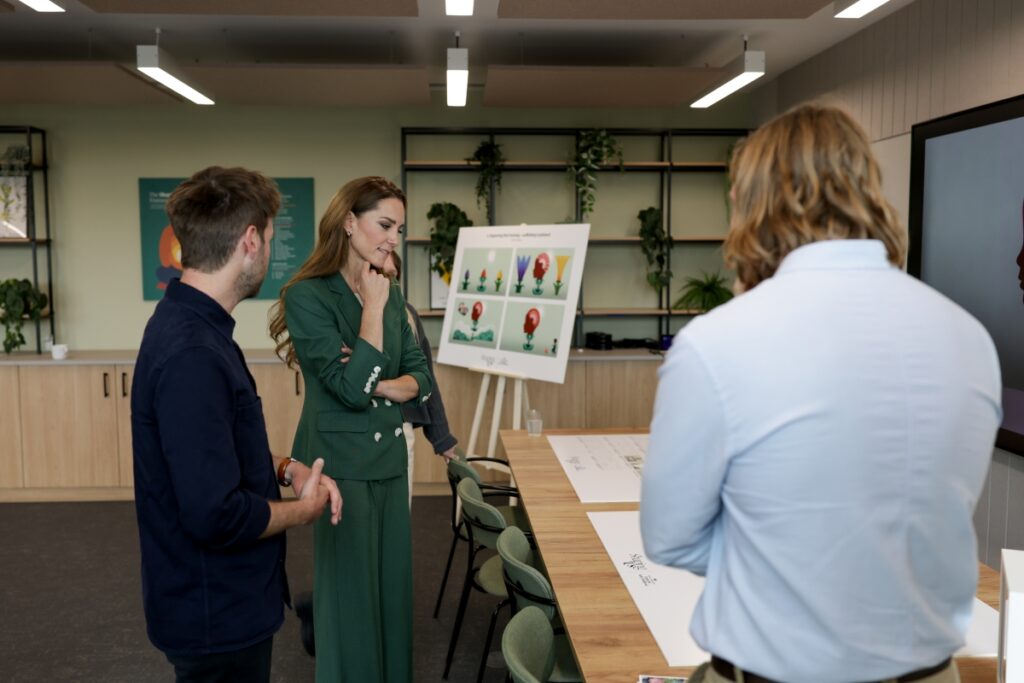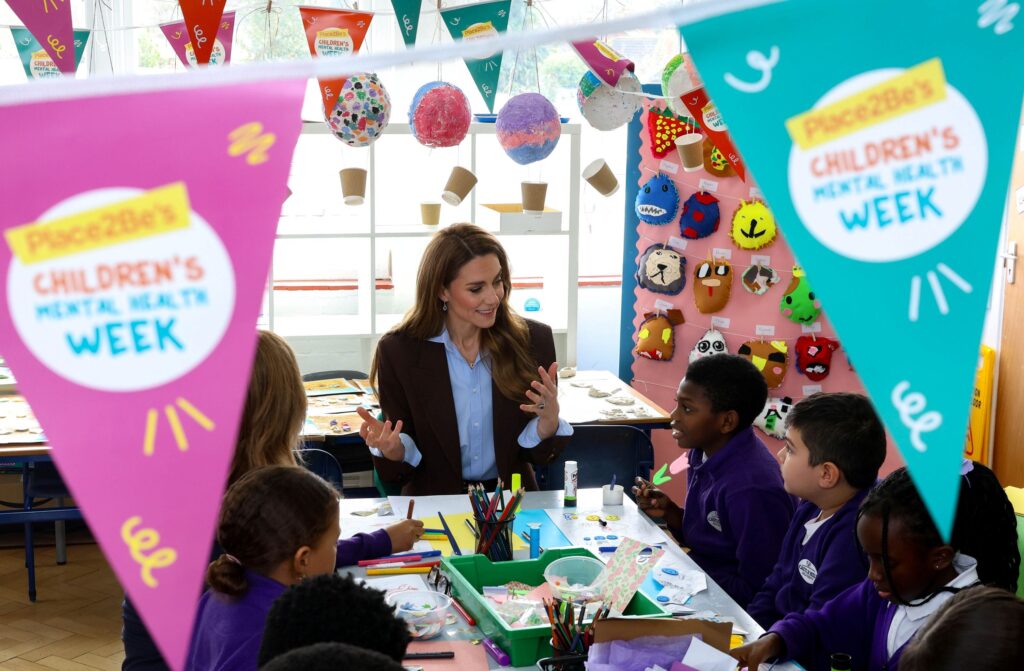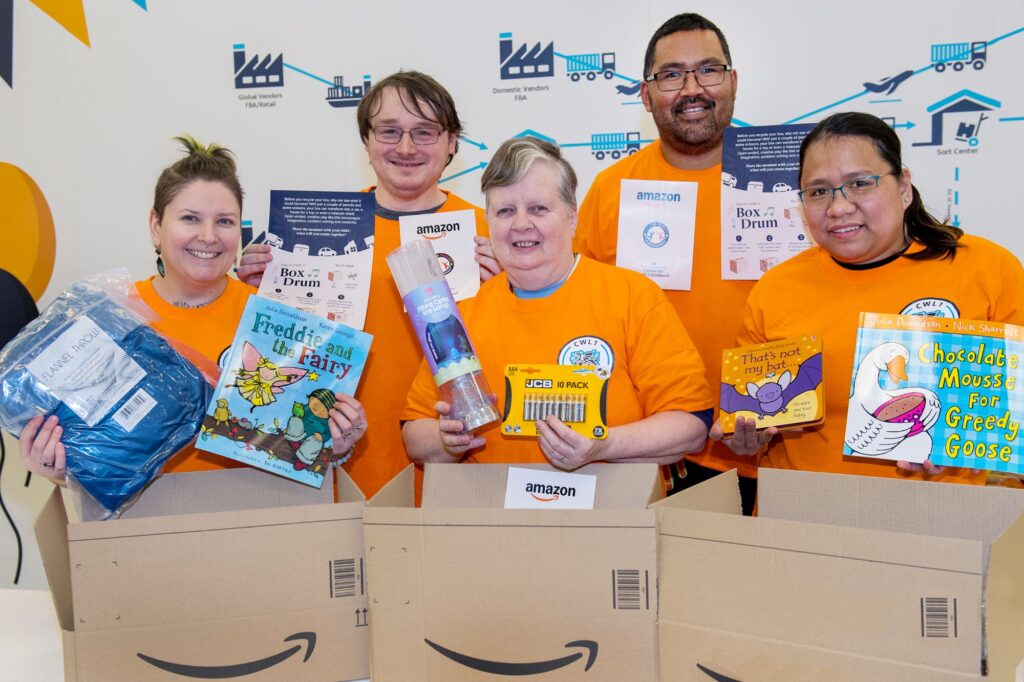The Royal Foundation Centre For Early Childhood launches film series unpacking brain science to inspire social and emotional growth

The Royal Foundation Centre for Early Childhood has today, Wednesday 6 August, released a series of animated films unpacking the brain science and explaining key concepts behind the way nurturing interactions support the social and emotional development of babies and young children.
Building on the Centre’s Shaping Us Framework, the films explain the science behind the everyday moments of connection that can have a long-term positive impact on a child’s life.
They are designed to be used by people who work with babies, children and families, so that they are better equipped to have meaningful and consistent conversations with parents and carers about social and emotional development. The Centre is working with universities, charities and professional bodies to build these films into training and practice around the country.
The series combines the creative talents of a group of inspiring illustrators and animators from around the world, with the scientific rigour of two of the country’s leading figures in child development, Professor Peter Fonagy and Professor Sam Wass, as well as the vast experience of an advisory group of early childhood professionals working with families from across the UK.
Although 94% of the UK population believe that social and emotional skills are important for happiness in adult life, 42% have little or no idea about how these skills develop during early childhood. The purpose of these animated films is to help increase that understanding, and in doing so, improve outcomes for the development of babies and young children.
Her Royal Highness The Princess of Wales has been closely involved in the development of the films. She spent time with two of the illustrators and met early years practitioners who have been involved in the development of the films during a creative workshop in June.
“Early childhood has been recognised as the golden opportunity to build strong foundations for future life health and happiness.
“The new animated films from The Centre of Early Childhood showcase how adults can create nurturing, loving interactions with children, helping to foster social and emotional development during their earliest years.
“These core social and emotional skills are essential in forming healthy relationships and are fundamental building blocks that can carry us through life.
“That is why we want to raise the awareness of, and celebrate, the extraordinary value of everyday moments of connection which matter more than ever in a rapidly changing world.
“Early childhood offers a sacred opportunity to transform our societies for the better and by nurturing these skills in our babies and children, we will be raising a younger generation better equipped to face the future.”
– The Princess of Wales
More than 25 organisations are already working with The Centre for Early Childhood to support practitioners to use the films in their work, ensuring they deliver real change in the quality of services for families, from sharing them with their networks to embedding the films in their training programmes.
The series, which has also been translated into Welsh and British Sign Language, uses different styles of illustration, from curated line illustrations to papercraft, to help bring core concepts related to child development to life in an accessible and engaging way.
The introductory film is illustrated by Maggie Stephenson, the artist who worked with the Centre to develop the Shaping Us Framework, animated by &Orange and produced by Making Pictures.
The topics covered in the films are:
- How we grow an emotionally healthy brain: this film describes the rapid development that happens in early childhood. It explains how early relationships, surroundings and experiences shape development and can have lasting effects throughout life. This film was illustrated by Jasmine Hortop, animated by Real Good Liars and produced by Making Pictures.
- Noticing and navigating feelings: this film unpacks a concept called attunement. In attuned conversations, adults notice a child’s emotional state, name what they are feeling and help them to manage these feelings. The film also describes other ways adults can talk to babies and young children about emotions and how this supports development. This film was illustrated by Alec Doherty, animated by Plastic Horse and produced by Grand Matter.
- Managing big feelings together: this film explains a concept called co-regulation. Co-regulation involves supporting another person when managing big feelings and returning to a state of calm. When adults co-regulate children, they help a child deal with positive or negative feelings that might otherwise be overwhelming. This enables the child to return to a state where they can think clearly, feel safe and respond to the world around them in helpful ways. This film was illustrated by Brian Rea, animated by Delcan & Co and produced by Dutch Uncle.
- Back and forth interactions: this film unpacks a concept called contingent responsiveness (also known as serve and return). Contingent responsiveness is what happens when an adult notices a baby or child’s cue or signal and responds in a way that is sensitive and appropriate. This is a central part of nurturing care. This film was illustrated by Haley Tippmann, animated by Henrique Barone and produced by Oskar Illustration.
- Supporting early learning: this film explains a concept called scaffolding. Scaffolding occurs when adults support children’s learning by helping them to do something for themselves, adjusting the level of guidance and support provided, led by the child’s needs and abilities. This supports the child in mastering new skills. This film was illustrated by Vicki Turner, animated by Plastic Horse and produced by Grand Matter.
- Creating space for connection: this film explains a concept called pacing. When we pace our interactions with children, we adjust our tempo and slow down to help them to process information and respond. Pacing creates space and time for meaningful connection, giving the child greater opportunity to engage positively in an interaction or activity. This film was illustrated by Owen Gildersleeve, animated by Plastic Horse and produced by Grand Matter.


